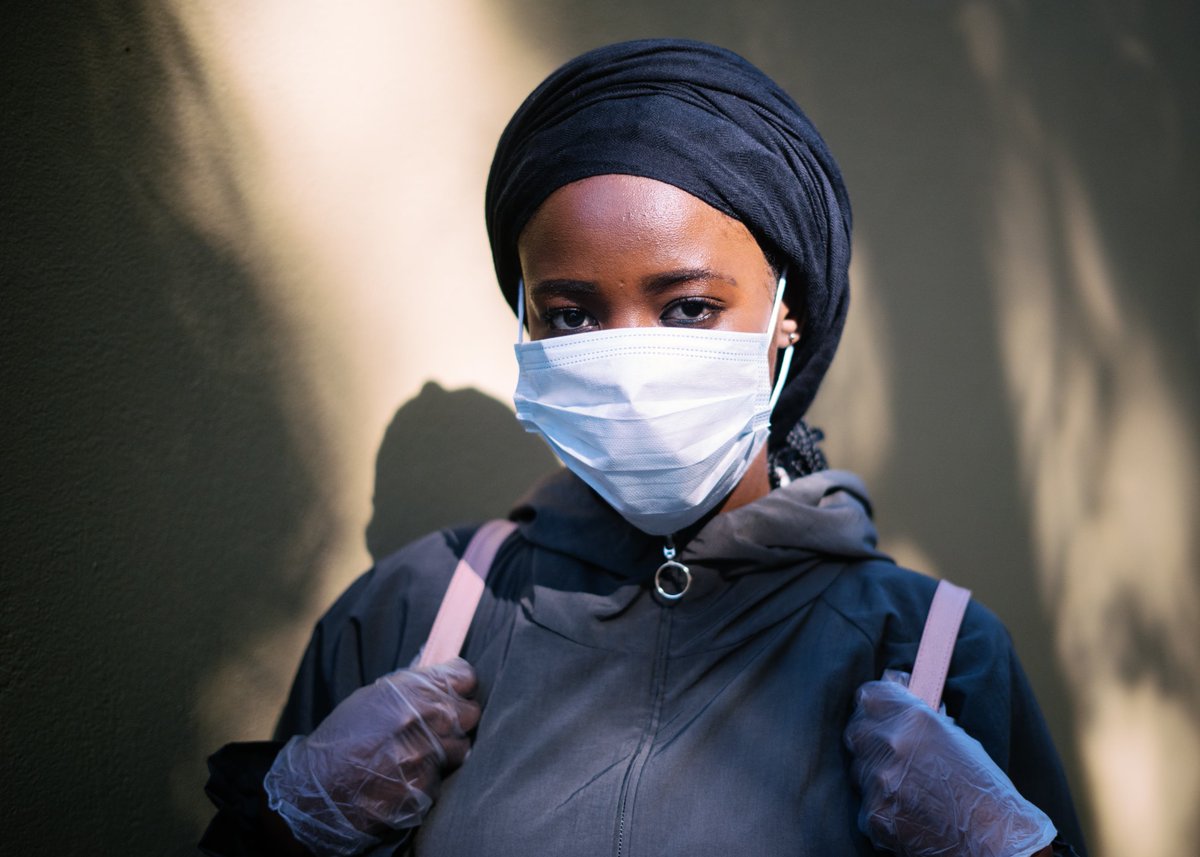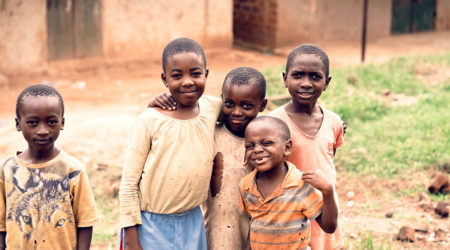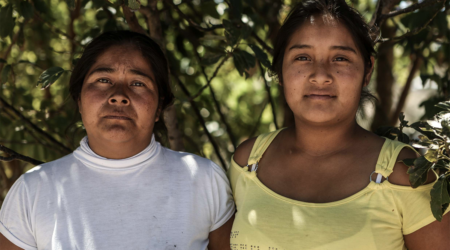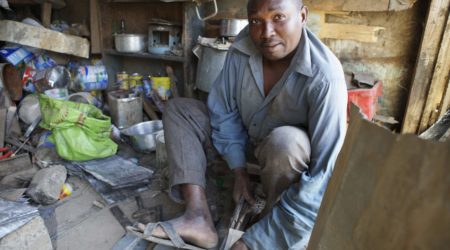Waking up to the Covid health threat in Kenya

Originally posted on the FSD Kenya Website, February 4, 2021
“Yes, corona is real,” Beauty, a middle-aged mother in rural Western Kenya told us in mid-November. “Two of the doctors who recently died are from this area.” Beauty herself has lost her sense of smell. A friend told her it’s a symptom of Covid, but she is not planning to test. “Whatever it is, it will pass.” It didn’t seem worse than any other ‘homa’ (flu). She was continuing her tailoring business as usual, and her child in class four was back to school, coming home every evening, where the family shared a one room house.
Since late March 2020, we have been checking in with about 200 Financial Diaries households to understand, primarily qualitatively, the economic and financial impacts of Covid-19. Our fourth round of interviews took place mostly in December 2020. While economic concerns continued to be important, the health threat of the virus was becoming more salient to our respondents. In November and December, we had a large uptick in the share of households reporting Covid-like symptoms and increased deaths in their areas. But testing remained extremely rare. There are reasons to be concerned that cases and deaths from Covid are being underreported, and that this may be contributing to lax compliance to Covid protocols, which could exacerbate illness and delay Kenya’s economic recovery.
A shift in perception from Covid scam to Covid threat
In our previous round of calls (September/October) and some field visits in August, a number of respondents hadn’t seen clear evidence that Covid was real. Many laughed it off. “There is no corona here!” said Nancy, in Vihiga when we visited her wearing masks and carrying hand sanitizer. Many expressed a view that the government had exaggerated Covid cases to get international aid money to plunder.
But views shifted in our November and December calls. We asked our 196 respondents explicitly if they considered Covid a real threat, and 62% said yes. “It’s starting to look real. We have heard of people who have died in our county including county officials,” said Judith in Vihiga, echoing many respondents who feel that—now they know people who have become sick or died or heard warnings from officials specifically from their communities—that the virus is real and a potential danger.
But there is still skepticism, with a significant share of rural respondents saying that the virus is not in their communities, believing it is spread only by city people:
“No, [corona is not a threat]. Most people in this area just live within and rarely travel. It’s not a risk unless people travel during Christmas.”
“Corona is nowhere near our village, even though there is a possibility of someone from the towns bringing it.”
Others continue to doubt the sincerity of government messaging, believing the health threat continues to be exaggerated to allow the police to collect bribes:
“I don’t know how to answer that [question of whether corona poses a real threat]. I have heard of only one person who contracted the virus. It was more of hearsay and I’m not sure if it was true…On the other hand, we see the police arrest people for lacking masks. They throw you in the pickup, and demand KShs 1000 – 2000 [about US$ 10-20], which makes it just a commercial thing for them.”
“There maybe Corona in Kenya but the news around it is being exaggerated to manipulate and take advantage of the common mwananchi (citizen).”
More people have symptoms, but testing is very low
In rural Makueni, Pamela’s daughter was sick with pneumonia in the two weeks before we called in December. They simply collected some medicine at the local dispensary. She recovered. “She didn’t test for Covid; it’s just a small dispensary,” Pamela told us. When we asked whether Pamela thought Covid was a real threat, she said, “No, I haven’t even heard of any cases near us.” Hearing many similar stories, we wondered if this could be part of a larger trend.
In the latest round of calls 32% of respondents told us that a household member was sick enough to need medical care in the two weeks prior to our call. A number of others mentioned being sick—often with Covid-like symptoms, similar to Beauty, without saying they were sick enough to need care. None of these individuals sought Covid testing during their illness. In fact, since March, only 10 individuals in our sample of 196 households in this round were ever tested, only once in the case of illness. (Most were tested by employers, two had household members tested due to overseas travel, and one couple was tested when community screening was offered in Mombasa.)
There seemed to be several reasons that sick, symptomatic individuals were not seeking testing:
a) Doubts about personal risk. As already stated, a number of people think Covid only affects ‘city people’ and people who travel. When they experience flu-like symptoms, they may not expect that it’s Covid if they don’t fall into those groups. Many self-diagnose their flu-like symptoms as malaria, typhoid, or flu and self-medicate accordingly.
b) Some believe Covid is extremely severe. One respondent said, for example, “It wipes people out in a second!” They see extremely ill people on TV and expect that all Covid cases are extreme, requiring ICU care. It’s then easy to write off less severe symptoms as if they are any other cold or flu.
c) On the opposite end, there are others who think that it’s no big deal. And if they have Covid, they just expect to recover and move on. They don’t see the point in paying for testing. One respondent, a matatu driver near Eldoret, explained, “It’s just like homa or malaria: you get it and get well after some time.” He joked and said he’s most likely already had it and recovered.
d) Unable to afford testing and isolation. Many others expressly mentioned that the costs of testing and quarantine—the opportunity cost of not working for at least two weeks, amidst a very difficult economic situation—were too high. Testing positive would come along with a huge economic burden no one was prepared to manage. A respondent explained: “People are afraid of being taken to quarantine as they cannot cater for their normal expenses. How will they pay for quarantine and their houses?”
Another respondent told us, “I have arthritis and usually get medication after 2 or 3 weeks from a private hospital. It costs me KShs 1000 [about US$10], plus! But, I don’t want to go to public hospital, as I am always coughing, and they might say I have corona and take me to quarantine.”
If you just carry on, like Beauty, you can keep supporting your family and repaying debts accumulated over months of hardship.
e) Healthcare workers may not be referring people to testing. While a large number of respondents sought medical attention in November and December—usually with Covid symptoms—none mentioned that their clinicians recommending testing. Perhaps our respondents did not disclose these referrals out of embarrassment or shame for not following through. Or perhaps clinicians are not referring many mild cases for testing, given their awareness of affordability constraints.
This has been compounded by health worker strikes and lack of affordability to see clinicians. As Peter in Mombasa told us, “My daughter and I were sick. I assumed it was malaria. Since we didn’t have money to go to hospital, I only went to the chemist and bought malaria drugs at KES 300 for 2 doses.”
More reports of deaths with Covid symptoms, but uncertainty about reporting
A few weeks ago, a New York Times journalist was criticised for suggesting that Covid deaths in the region may be severely underreported. But the truth is that deaths reported publicly in Kenya are only among those with positive tests. We do not yet have public data on registered deaths or, more broadly, excess mortality [1]. Several respondents reported upticks in deaths in their areas and frequent funeral attendance, though they have different explanations about the causes of death. One respondent explained, “There have been frequent deaths in this area. We don’t know the cause or reason for it. I haven’t gone to see or get some information from the people on what is causing the deaths, as I don’t want to expose myself in case it’s corona.” Others say people are calling every death “corona,” so it’s hard to say what’s true. The numbers of deaths are not totally overwhelming, but are likely significantly higher than official figures.
Uncertainty about the real risks from the disease appear to be leading many to let down their guard
Benson in Nairobi told us, “Not many people care about distancing or the other measures. We go to church, and still we sit closely together like we did before Covid.”
Separately, another respondent told us that the community turned up its precautionary measures when there was a confirmed Covid death in a neighbouring village. “More people are taking precautions, now, like wearing a mask.”
Is the worst over?
The economic toll of Covid-19 in Kenya has been tremendous. Many respondents, like Benson, are frustrated at how long it has taken to recover, with few earning incomes at pre-Covid levels. They wonder if the whole crisis was overblown, at the cost of their livelihoods.
The trouble is that it’s hard to tell. Without clear, accurate information on deaths as well as cases, it is hard to gain compliance with basic prevention measures—like masks and distancing—which might slow transmission even in the absence of stricter lockdowns. High rates of community spread are also leaving Kenya vulnerable to new variants of the disease, posing new risks.
[1] The media have recently reported a new study confirming low mortality in Nairobi, but the full report has not been released.



